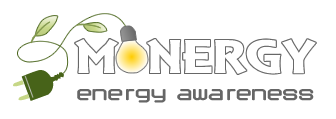The planned activities are structured into four technical workpackages and two additional ones for management and dissemination. The technical activity will be carried out in WP2-WP5.
WP1 is devoted to the project management activities.
In WP2, we will elaborate the set of requirements for smart home energy monitoring, and we will study the existing solutions in order to identify their gaps w.r.t. the elaborated requirements, i.e., where research and development activities are essential.
WP3 regards the aspects related to the data network and to the software solutions for monitoring and controlling of in-home appliances that have new functionalities. Research activity will be carried out to provide a comprehensible and simple user interface for monitoring the current state of the system and the appliances.
WP4 focuses on the research activity related to the hardware architecture. Robust communication network protocols exploiting both wireline and wireless technologies will be studied. The goal is the realization of a validation test bed comprising smart outlets, a data exchange network and a control software that will allow for carrying out a real life monitoring campaign. We aim at developing an easy to use hardware/software solution so that other tests can be carried out in follow up projects targeting similar applications.
In WP5, in order to get feedback on the applicability of the elaborated concepts, the models will be validated in the lab and real-world test campaign will be carried out. The data from the monitoring campaign will be elaborated so that energy usage models and energy management strategies can be devised aiming at reducing energy consumption.
WP6 is dedicated to the dissemination activities, where the aspects of academic and industrial collaboration and networking, exploitation of results, and open events are targeted.
Die geplanten Arbeiten gliedern sich in vier technische Arbeitspakete und zwei Arbeitspakete zum Projektmanagement und Verbreitung der Ergebnisse. Eine enge Kooperation wird angestrebt. Die technischen Arbeiten werden in den WPs 2-5 durchgeführt.
WP1 beinhaltet die Projektleitung und -gestaltung.
In WP2 wird eine detaillierte Anforderungsbeschreibung für ein Smart-Home-Energiemanagementsystem erarbeitet und vorhandene Lösungen und Architekturen auf ihre Anwendbarkeit hin erforscht. Daraus ergeben sich konkrete Bereiche in denen weitere Forschung und Entwicklung notwendig ist. Eine Anforderung an das System ist eine zuverl��ssige und einfach zu installierende Netzarchitektur zur Überwachung und Steuerung von typischen Geräten wie zum Beispiel Fernseher, Heizung, Lüftung und Klimatisierung, Haushaltsgeräte, etc.
In WP3 werden von beiden Partnern gemeinsam Softwarekonzepte erforscht und erarbeitet, welche die Einbindung von neuen Geräten mit neuen Funktionen in einer offenen Architektur unterstützt. Dazu erforschen wir Wege, um dem Benutzer eine verständliche und umfassende Darstellung des Systemzustands und seiner Komponenten zu geben. Um den Benutzer bei Systemänderungen von komplizierten Installations- und Konfigurationsaufgaben zu entlasten, untersuchen wir die M��glichkeit den intelligenten Geräten ein entsprechendes System mit einer computergerstützten Plug-and-Play Funktion zu geben. Beide Aspekte werden von beiden Partnern gemeinsam erarbeitet.
In WP4 werden geeignete Hardware- und Systemarchitekturen für ein derartiges System erforscht. Im Besonderen werden robuste Kommunikationsmethoden (z.B. Power-Line und Drahtloskommunikation) sowie Hardware/Software-Integration von Ger��ten untersucht. Die Softwarefallstudien aus WP3 werden gemeinsam mit einer geeigneten Hardwarearchitektur
zu einem Testsystem mit sogenannten Smart Outlets, einem Netzwerk zum Datenaustausch und einer Steuerungssoftware für Messaufgaben vereinigt. Dieses Testsystem ermöglicht die Validation in WP5 und ist Grundlage für weitere Technologieforschung in zukünftigen Projekten.
In WP5 wird die Anwendbarkeit der erarbeiteten Konzepte in einem Labortest (Lakeside Labs) und in einer applikationsnahen Testumgebung (WitiKee) ��berprüft. Aus den Daten der Messergebnisse wird ein Modell zu Energieverbrauch und Energiesparstrategien gebildet.
WP6 dient der Verbreitung der Projektergebnisse anhand
akademischer und industrieller Kooperationen, Networkingaktivitäten, Verwertung der Projektergebnisse, und sogenannten Open Events als Informationsveranstaltungen in der Mitte und gegen Ende des Projekts.
Le attività pianificate sono strutturate in quattro workpackage tecnici e due addizionali per la gestione e la disseminazione. L’attività tecnica sarà condotta
nei WP2-WP5.
Il WP1 è dedicato alle attivit�� di gestione del progetto.
Nel WP2 viene elaborato l’elenco dei requisiti per il monitoraggio dei consumi nella Smart Home e studieremo le soluzioni esistenti al fine di identificare le lacune rispetto ai requisiti elaborati, ovvero, dove sono indispensabili attività di ricerca e sviluppo.
Il WP3 è dedicato agli aspetti relativi alla rete dati e alle soluzioni SW per il monitoraggio e controllo di dispositivi domestici con nuove funzionalit����. Verrà svolta attività di ricerca per offrire un’interfaccia semplice e comprensibile all’utente per il monitoraggio dello stato corrente del sistema e dei dispositivi domestici.
Il WP4 si focalizza su aspetti di ricerca relativi all’architetture hardware. Vengono studiati protocolli robusti di comunicazione sfruttando sia le reti cablate che il wireless. L’obiettivo è la realizzazione di un banco di prova per la validazione che comprende prese intelligenti, una rete di scambio dati e un software di controllo che consentirà di condurre una campagna di monitoraggio in uno scenario realistico. Vogliamo sviluppare una soluzione hardware/software semplice da utilizzare, cosicché altri test possano essere condotti in progetti a seguire con obiettivi e applicazioni simili.
Nel WP5, i modelli verranno validati in laboratorio e sarà condotta una campagna di test in uno scenario realistico al fine di avere un feedback sull’applicabilità dei concetti elaborati. I dati della campagna di misura saranno elaborati per ottenere modelli d’utilizzo dell’energia e strategie per la gestione dell’energia al fine di ridurre i consumi.
Il WP6 è dedicato alle attività di disseminazione, di collaborazione accademica e industriale, di networking, di sfruttamento dei risultati e di realizzazione di open events.
